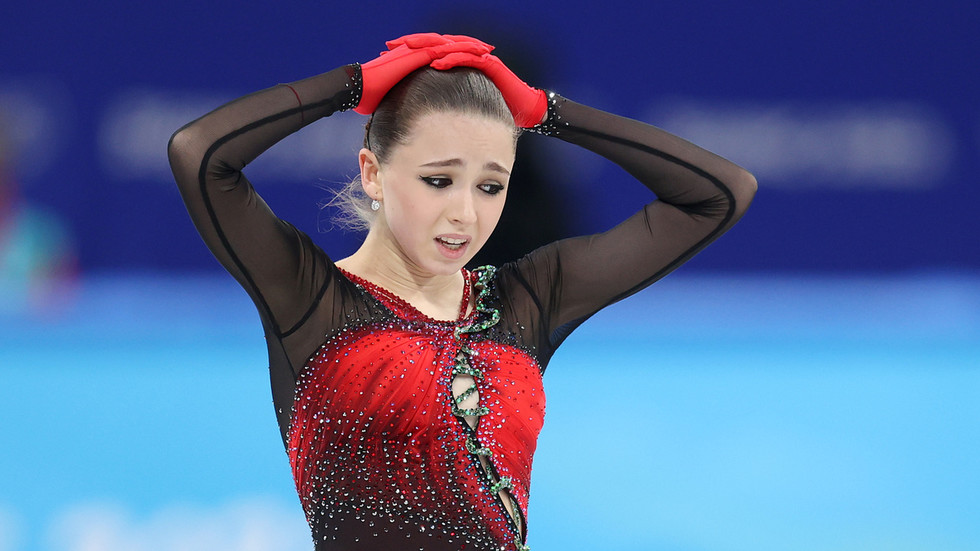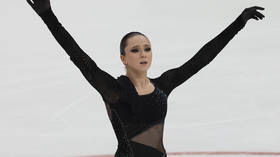
The then 15-year-old Kamila Valieva tested positive for banned heart medication ahead of the 2022 Beijing Winter Olympics

Kamila Valieva of Team ROC reacts during the Women Single Skating Free Skating Team Event on day three of the Beijing 2022 Winter Olympic Games at Capital Indoor Stadium on February 07, 2022 in Beijing, China © Getty Images / Catherine Ivill/Getty Images
Russian figure skater Kamila Valieva was issued with a four-year ban by the Court of Arbitration for Sport (CAS) on Monday, two years after the teenager tested positive for a banned substance in an incident that dominated the Beijing Winter Olympics.
The CAS ruling means that all results achieved by Valieva following her positive test on December 25, 2021, when she was 15 years old, will be removed from official records. Now 17, Valieva must also forfeit all titles, awards, medals, and prize and appearance money she subsequently received.
CAS added that it was not within its remit to remove the Russian team’s gold medal in the team event in which Valieva participated. However, it appears certain that the International Skating Union will strip the Russian Olympic Committee of the medal and instead award it to the United States, who finished in second place at the event.
“Kamila Valieva is found to have committed an anti-doping violation and sanctioned with a four-year period of ineligibility commencing on 25 December 2021,” CAS said.

Read more
In its judgment, CAS explained that it was not able to establish that the banned substance – the heart medication trimetazidine – was not ingested “intentionally” by Valieva. The athlete’s legal representatives had argued that the teenager had received trace amounts of the substance accidentally and that it had been prescribed to her grandfather.
The positive drug test result was announced a day after she helped the Russian team win gold in Beijing in February 2022. The International Olympic Committee (IOC) opted not to hold a medal ceremony in light of the development.
Among the official bodies that sought CAS judgment on the matter, the World Anti-Doping Agency (WADA) welcomed the ruling as a victory for fair sport. “WADA took this appeal to CAS in the interests of fairness for athletes and clean sport, and we believe that has been delivered through this decision.”
WADA added that “the doping of children is unforgivable.” Russia’s anti-doping agency, RUSADA, had previously found that Valieva had “no fault or negligence” from the failed drug test.
In response to the CAS ruling, Kremlin spokesman Dmitry Peskov said on Monday the ruling was “politicized” and would likely be appealed. “We must protect the interests of our athletes to the end,” he said.
Valieva, who became the first female skater to successfully land a quadruple jump at the Beijing Games two years ago, will be eligible to return to competition at the 2026 Milano-Cortina Winter Games, should an appeal be unsuccessful.




